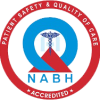- (0755) 2464140, 2426262, 2421568, 4050037
- jainamshreehospital@gmail.com
- HOME
- ABOUT US
- TREATMENTS
- GASTROENTEROLOGY
- SURGICAL GASTROENTEROLOGY
- HEPATOLOGY
- GYNAECOLOGY
- DERMATOLOGY
- OBESITY
- UROLOGY
- ANAESTHESIOLOGY AND CRITICAL CARE
- RADIOLOGY
- EMERGENCY MEDICINE
- GENERAL MEDICINE
- GENERAL SURGERY
- ORTHOPAEDIC SURGERY
- SURGICAL ONCOLOGY
- CARDIOLOGY
- NEUROLOGY
- NEPHROLOGY
- RESPIRATORY MEDICINE
- ENT
- OUR DOCTORS
- PATIENT’S TESTIMONIALS
- CONTACT US


